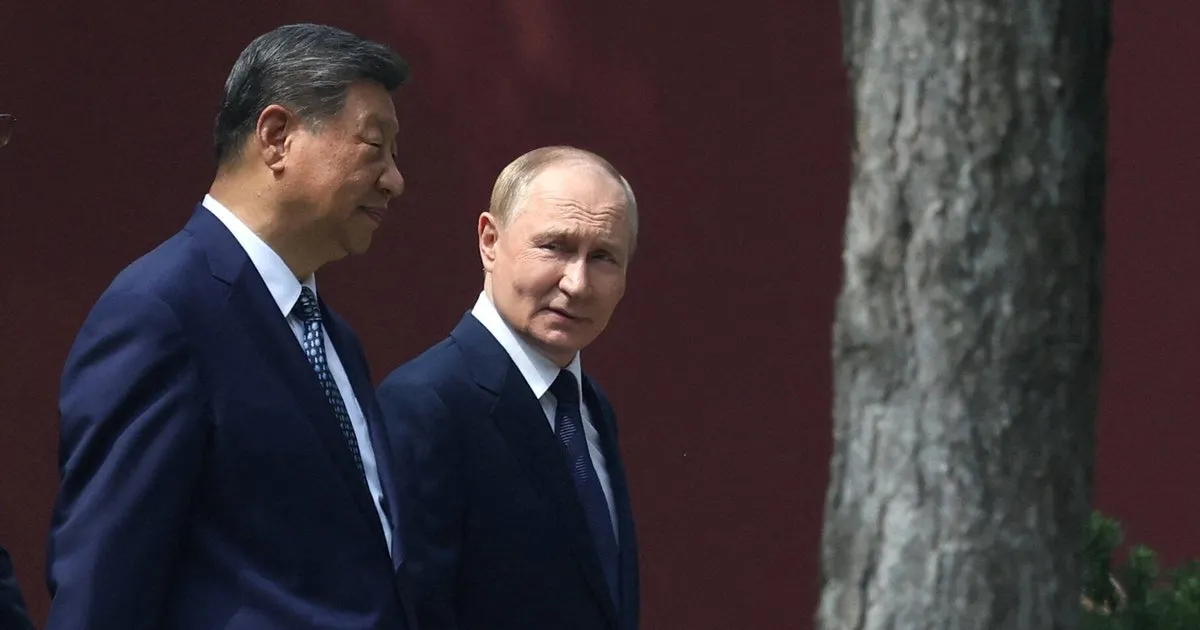
Beijing is set to host its largest military parade to date on Wednesday, commemorating the 80th anniversary of the end of World War II and Japan's formal surrender. This momentous occasion will unfold along Chang-an Avenue, a name that translates to "Eternal Peace." In attendance will be high-profile leaders including Chinese Prime Minister Xi Jinping, Russian President Vladimir Putin, and North Korean leader Kim Jong Un.
As preparations for the parade have been underway for weeks, security measures in Beijing have reached unprecedented levels. Buildings along the parade route will be secured, ensuring safety for the approximately 50,000 spectators expected to witness this grand spectacle. The event will feature dignitaries from 26 countries, highlighting China's growing geopolitical influence.
For the 72-year-old Xi Jinping, this parade represents a landmark achievement, marking the third and most significant military display he has overseen since assuming power in 2012. As the commander-in-chief of the world's largest standing armed forces, Xi will observe tens of thousands of troops marching toward Tiananmen Square, showcasing China’s military might and advanced weaponry.
The parade will not only exhibit China's latest military hardware, including hypersonic weapons, nuclear-capable missiles, fighter jets, and underwater drones, but will also symbolize China's increasing clout on the global stage. The attendance of leaders from nations like North Korea, Iran, and Myanmar illustrates a movement towards solidarity among heavily sanctioned states, positioning them against the U.S.-led world order.
North Korea's Kim Jong Un traveled to Beijing aboard his distinctive green armored train, a trip that included an inspection of missile production facilities before his arrival. This parade marks the first multilateral diplomatic gathering for Kim, who will share the spotlight with Xi and Putin. Analysts have referred to this alliance as an Axis of Upheaval, highlighting the potential shift in global power dynamics.
The growing partnership between China and Russia has been evident in the lead-up to this event. While Beijing claims neutrality regarding Russia’s actions in Ukraine, it has provided crucial support through the purchase of Russian oil and gas and the provision of dual-use technology. This cooperation has served as an economic lifeline for Putin’s ongoing conflict.
During a recent meeting at Beijing's Great Hall of the People, Putin praised the elevated relations with China, expressing gratitude to Xi for his hospitality. North Korea’s involvement has been direct, with approximately 13,000 troops reported to have been sent to support Russia’s military efforts, indicating a shared commitment to mutual defense and military collaboration.
At a regional security summit held in Tianjin, Xi articulated a vision for a multipolar and just world order, aligning with leaders from various nations to oppose what he described as hegemonism and power politics. This gathering of non-Western leaders serves to bolster China’s image as a reliable ally amid tensions with the West, especially following recent U.S. tariffs on India for its dealings with Russia.
As the parade progresses, Xi aims to assert China's role as a stable partner while showcasing its military capabilities and burgeoning alliances. This event sends a clear message to global observers, particularly those in the U.S., about China’s determination to reshape international relations and its commitment to strengthening partnerships against Western hegemony.